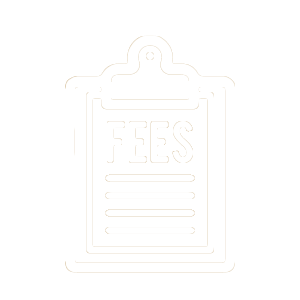The Incentives Granted to the Businesses in the UAE
In Combatting The Outbreak of (COVID-19)
A Comprehensive Economic Plan From the UAE Central Bank
The Central Bank of the United Arab Emirates has adopted a number of measures and measures for monetary policy at the federal level, in an effort to support the national economy, and protect consumers and companies, represented in the approval of criteria for lending and capital reduction and the adoption of new regulations.
100 Billion AED An Economic Support Plan for Individual & Corporate Clients Affected by the Pandemic.
A financial support plan directed from a credit of up to 50 billion dirhams, for loans and advances at zero cost to banks operating in the country covered by a guarantee, in addition to 50 billion dirhams that are released from the additional preventive capital of banks.
Allowing banks in the country to use part of the supervisory protective capital to support new lending operations and support the country's economy.
Allow all banks operating in the country to obtain loans and advances without cost according in accordance with the support plan.
6 months postponement of payments due on corporate and individual bank customers.
The central bank announces that the foreign currency reserves of 450 billion dirhams are sufficient to stabilize the national currency and achieve monetary and financial stability.
Providing temporary relief from principal payments and interest on existing loans to private sector companies and individuals.
Adopting new systems to reduce fees incurred by merchants when customers pay with debit or credit cards
Adopting new systems to set limits on fees imposed by banks on small and medium enterprises & that banks don’t require a minimum account balance of more than 10 thousand dirhams.
95 Billion AED
Reserve Liquidity Cuts
61 Billion AED
Redacting Regarding Requirements of Mandatory Cash Reserves
The Federal Government Stimulus Relief Package in Combatting the Effects of COVID-19
Economic support incentives and government initiatives focused mainly on lifting all economic burdens during the crisis to prevent any negative repercussions resulting from the spread of Covid-19 on various sectors in the country, in order to encourage the investment environment and business community and to ease the effects on the UAE’s citizens, residents and visitors.
Cabinet’s resolution regarding determining the positive list of economic sectors and activities in which foreign direct investment is permitted and the percentage of their ownership which allows 100% foreign ownership, which includes the list of 122 primary and secondary economic activities in the sectors of agriculture, industry and services to the foreign investor.
Granting a temporary licenses for a project to use digital transaction technologies in the work of a notary, to make it easier for everyone to complete their judicial transactions.
Approving the registration of vehicles without paying traffic violations or conducting a technical examination of the vehicle.
Extending expired residency for residents that are set to be expired on March 1st for a period of 3 months, and exempting expired residencies from financial violations until the end of 2020.
Extending the validity of government services ending on March 1, 2020 for a period of 3 months directing along with directing factories to support the health sector needs in the country.
Reducing electricity and water consumption bills by 20% for the tourist, commercial and hotel sector registered with the Federal Electricity and Water Authority, for a period of 3 months at a total estimated cost of 86 million dirhams.
Stop calculating administrative fines for violations of the services of the Federal Authority for Identity and Citizenship from April 1, 2020.
Measures to support the stock market , the most prominent of which is the extension of the financial disclosure deadline for the 2019 data.
Postponing the collection of the fees for delivery and re-service fees for shopping centers, shops, hotels, hotel apartments and factories for a period of 6 months.
Abu Dhabi Government Incentives to Ensure the Stability of National Economy & Business Environment
Abu Dhabi government has adopted a set of financial incentives to support the business & corporate community in the emirate, as part of the joint efforts between First Abu Dhabi Bank, Abu Dhabi Islamic Bank and Abu Dhabi Commercial Bank, in cooperation with the Department of Finance and the Department of Economic Development, to provide an immediate support to individuals and small and medium-sized companies in the emirate, by reducing costs related to financing, access to it, and maintaining the flexibility of the local economy.
 Banking Reliefs for Individuals
Banking Reliefs for Individuals
- Postponing the payment of outstanding installments and interest on loans and credit cards for 3 months.
- Providing am ease of payment for water and electricity bills in installments.
- Installment of tuition fees without interest or fees.
 Banking Reliefs for Companies
Banking Reliefs for Companies
- Allocation of 5 billion AED to support electricity and water.
- The allocation of 3 billion AED to the commercial guarantees program to finance small and medium-sized companies.
- The allocation of one billion AED to establish the "Market Maker Fund" in the Abu Dhabi Stock Exchange.
- Reducing the merchant service fee 50% for small and medium-sized companies with less transactions. From 5 million dirhams.
- Reducing fees and prices by up to 50% for accounts without balance.
 Governmental Financial Reliefs
Governmental Financial Reliefs
- Postponing collection of troubled debt for locals for a period of 3 months.
- Ceasing the implementation of rental evictions and executive procedures.
- Exemption of fees for renewing licenses, commercial activities and fees for protecting personal data.
- Exemption of fees for issuing and renewing temporary work permits until March 25th of 2021.
- Exemption from annual fees for investment funds for the end of 2020 and the return of fees paid.
- 50% reduction on regulatory fees for companies subject to the authority to regulate financial services.
- Cease rent collection and service fees for tenants.
Dubai Government Incentives to Ensure the Stability of National Economy & Business Environment
The government of Dubai has adopted a set of economic incentives worth 1.5 billion dirhams for a period of 3 months, with the aim of supporting individuals and the business sector in Dubai, and enhancing financial liquidity and combatting the effects of the exceptional current economic situation.
 Banking Reliefs for Individual
Banking Reliefs for Individual
- Postponing installment payments in cases of leaves with no salary for a period of 3 months with no interests or fees.
- Refunding the fees for canceling travel tickets paid with credit and debit cards.
- Installment of credit card due for school installments and food, set without interest or fees for a period of 6 months.
- 5% increase in financing for the property’s value when purchasing a house for the first time, also refunding application fees.
- Redeeming debit card cash withdrawal fees from ATMs.
 Banking Reliefs for Companies
Banking Reliefs for Companies
- Reducing the minimum monthly balance required for companies to 10 thousand dirhams.
- Exemption from the minimum balance fees for the business account for a period of 3 months.
- Postponing the installments for a period of 3 months to clients who have access to business financing reliefs.
- Reschedule or downgrade payments to sectors most affected by the crisis.
 Additional Governmental Reliefs
Additional Governmental Reliefs
- New capital is pumped into Emirates Airlines, to bypass the Coronavirus crisis.
- 10% off the water and electricity bill for a period of 3 months, and a 50% reduction in the insurance amount.
- Launching a package of economic incentives in the free zones, such as postponing the payment of rents, the installment of financial payments, and refunding many amounts of insurance and guarantees.
- Freezing the market fee of 2.5% for establishments for a period of 3 months.
- Refund of 20% of the customs tariff of 5% for imported goods that are sold locally.
- Cancellation of the amount of 50,000 dirhams as a bank guarantee for the practice of customs clearance, and the return of paid bank guarantees.
- Reducing 90% of the fees for submitting customs documents to companies.
- Exemption of traditional commercial boats registered in the country from fees for mooring and loading services at the port of Dubai and the port of Hamriyah.
- Cancellation of the 25% down payment requirement for requesting installment of government licenses fees.
- Renewal of commercial licenses without mandatory renewal of lease contracts.
- Exemption from licensing fees for new discounts and commercial offers.
- Reducing the municipality fee by 50% on hotel sales.
- Exempting companies from postponing and cancellation fees for tourism and sports activities during the year 2020 and freezing classification fees on hotels.
- Freezing tickets fees, issuing permits, fees for entertainment and business events.
- Freezing the implementation of rental evictions and executive procedures.
Sharjah Government Incentives Ensure the Stability of National Economy & Business Environment
The Sharjah government has adopted a number of incentives to support individuals and business sectors, which stem from the emirate’s keenness to enhance the continuity of development in various fields, and to mitigate the economic and social impacts that the world is witnessing during this period.
 Advantages Granted for the Tourism Sector
Advantages Granted for the Tourism Sector
- Exempting hotel establishments from the municipal fees of 5% for a period of 3 months.
- Exemptions and discounts for the fees of the various exhibitions during the year 2020.
- 50% discount for shops and malls participating in the marketing campaigns for 2020.
- Reducing the rent by 50% for a period of 3 months inside the airport for each of the restaurants, exchange shops, and stores.
- Commercial, banks, travel agencies, telecom companies, tourism promotion and car rental.
 Ease of Payment
Ease of Payment
- Reduction of truck parking tariffs at Sharjah Ports by 50%.
- Reducing port operations fees by 20% and marine fees.
- Postponing the installments of some projects financed by banks for 3 months.
- 50% discount on corporate stock conversion fees.
- Postponing the payment of installments of projects funded by the Sharjah Foundation to support youth projects (Rowad) for a period of 3 months.
- Release some 100 prisoners held in rental cases and give them 3 months to pay.
 Exemption of Fees
Exemption of Fees
- Exempting the investors dealing with the Department of Town Planning and Survey from paying the contractual due for a period of 3 months.
- Exempting economic establishments from licensing renewal fees for a period of 3 months during 2020.
- Exempting the shipping and customs clearance companies from bank guarantees.
- Exempting commercial companies from inspection fees, new license fees, and renewal of municipal permits for 3 months.
- Exempting companies operating in the free zones from visa fees and fines for delaying renewal of licenses.
- Commercial and wooden boats are exempt from mooring and loading fees in Sharjah Creek, Hamriyah and Khorfakkan Free Zone.
- Exemption of all bulk cargo from storage fees for a period of 90 days.
- Exemption from fees for Sharjah Police General Headquarters certificates for 3 months.
- Exemption from the municipality’s approval to renew the licenses of contractors and consultants for a period of 3 months.
- Exemption from fees for household sewage treatment services for a period of 3 months, and a 10% discount on the electricity bill.
Ajman Government Incentives Ensure the Stability of National Economy & Business Environment
Ajman government adopted the direct activation of the economic support decisions taken by the federal government in the UAE, and initiated a package of initiatives to reduce the burden on individuals and the business sector in the emirate, which focused on the full exemption of fees for some government services, and the reduction of others
 Economic Incentives
Economic Incentives
- Forming a committee from the concerned departments to study and coordinate a number of initiatives of a medium and long-term nature for economic stimulus.
- Exemption of 30% of cleaning fees for till the of 2020.
- Exemption of 20% of the rental fee certification fees for a period of 3 months, extendable.
- 100% exemption from permits for practicing economic activity 24 hours for selected activities.
- 100% exemption for hotel classification fees till the end of 2020.
- 100% exemption from fees for postponing or canceling activities until the end of 2020.
- 50% exemption from permits for discounts and commercial offers for a period of 3 months, which can be extended.
- Exempting tourist establishments from licensing year fees and suspending parking fees for a month, which can be extended.
 Decisions to Support the Real Estate Sector
Decisions to Support the Real Estate Sector
-
Stop countering administrative fines for:
- Violations of renewal of registration of real estate activities.
- Violations of real estate broker card renewal.
- Violations of the renewal of the owners' activity.
- Violations of a real estate developer registration renewal.
- Violations of renewal of registration of the real estate project.
- Violations of renewal of registration of the real estate project
- Violations of the extension of the real estate project
- Extending the renewal period for each of the specialized engineering consultant, account keeper and financial auditor.
- Granting no objection regarding changing both the contractor and the real estate project consultant.
- Extension of the period of advertising permits.
 Initiatives to Support the Foreign trade and the Customs
Sector
Initiatives to Support the Foreign trade and the Customs
Sector
- The possibility of paying custom duties in easy payments within 90 days.
- Decreasing container insurance fees by 50% for each container until the end of June 2020.
- Extending the period of delivery of the original shipping documents from 2 to 4 months, (renewable).
- Extending the free period for storing containers from 10 days to 20 days.
- Cancelling the collection of insurance fees for the delivery of original shipping documents for a period of 2 months (renewable).
 Decisions to Support the Tourism Sector
Decisions to Support the Tourism Sector
- Exempting hotel and tourist establishments from registration fees until the end of the current year 2020.
- Stop issuing delay fines for all hotel and tourist establishments.
- Postponing the payment of the due fines until the end of the current year for all hotel and tourist establishments.
 Administrative Resolutions
Administrative Resolutions
- The government shall ensure that the necessary periodic ( COVID-19 ) checks are carried out for employees whose work requires fieldwork & physical contact.
- Establish a committee of stakeholders to rearrange the priorities spending of the budget and government projects under the current circumstances.
 Decisions to Support Economic Establishments
Decisions to Support Economic Establishments
- Postponing the payment of the fines due until the end of the current year for all establishments.
- Stop issuing delay fines for all establishments.
Ras Al Khaima Government Incentives Ensure the Stability of National Economy & Business Environment
Ras Al Khaimah’s government has adopted the stimulus package announced by the federal government in addition to a set of direct incentives, such as exemptions from rents for a period of three months, and the postponement of government fees for individuals and companies. In addition to other incentives through by Ras Al Khaimah economic areas, amounting to 50 million dirhams targeted to operating companies under its umbrella counting for more than 15 thousand companies, and a number of other initiatives from the Ras Al Khaimah Tourism Development Authority, to ensure the continuity of the businesses of these companies and reduce the burden on them in light of the current exceptional global conditions.
 RAK Incentives For Industrial Companies
RAK Incentives For Industrial Companies
- 50% off the cost of the license, with flexible options for paying in installments.
- Exemption from the insurance payment for new residence visa applications.
- 25% discount on new visas for family members.
- Exemption from fines for delay in renewal, and exemption from fees for postponing checks.
- 25% discount on new workers housing permits.
- Exemption from entry fees to establishments affiliated to the Ras Al Khaimah Economic Zones (Rakz).
 RAK Tourism Initiatives
RAK Tourism Initiatives
- Establishing a motivation committee & steering committee with the membership of a number of senior executives in the hospitality, entertainment and development sectors.
- Exemption from tourist licenses fees for six months
- Exemption from "tourism dirham" fees from March to May.
- Exemption from tourist license fees for the second and third quarters, and from tourism licensing fines until the end of September.
- Allowing companies to participate in a group of exhibitions and promotional tours that will be launched in 2020 and 2021 without any fees.
 RAK Incentives for SMEs
RAK Incentives for SMEs
- 15% discount on the total renewal package for SMEs operating in joint and private offices.
- Flexible payment options.
- Exemption from the insurance fees for new residence visa applications and a 25% discount on new visas for family members.
- Exemption from check postponement fees, exemption from discount package fees, and exemption from activity change fees.
 Real Estate Initiatives
Real Estate Initiatives
- Major real estate companies in the emirate have taken initiatives to support the community by exempting tenants for shops, offices, shopping centers and investors, as well as in the projects of Mina Al Arab and Julphar Towers, and many other payment of rent for a period of three months.
Um Al Quwain & Fujairah Government Incentives Ensure the Stability of National Economy & Business Environment
The governments of Umm Al Quwain and Fujairah adopted the packages that the federal government launched regarding the Coronavirus Crisis (COVID-19), in addition to launching several local initiatives.
 Economic Incentives
Economic Incentives
- Exempting establishments affected by the Coronavirus pandemic from fees due for the local government, such as fees for renewing licenses, fees for renewing or certifying lease contracts, and other fees and fines.
- Reducing many other government fees for periods ranging from 3 months to the end of 2020.
- Reducing traffic fines and exemptions from rents for the mall tenants for a period of 3 months.
Exceptional Initiatives Programs & Funds from Government Agencies & Community Institutions
In order to enhance the state’s efforts to reduce the health, humanitarian, economic and social repercussions of the Corona pandemic, and to embody the implications of community cohesion that pervades the UAE community, many programs and funds have been launched from government agencies and community institutions in order to unify national efforts to address the crisis. The response of the Emirati society in all its spectra was exceptional, as they contributed hundreds of millions in support of the state and society in addressing the urgent challenges to face the repercussions of the crisis.
Fund for UAE The Homeland of Humanity
A national initiative from the National Authority for Emergency, Crisis and Disaster Management in cooperation with the Emirates Red Crescent Authority, and humanitarian societies and organizations in the country. To receive, at the UAE level, the material and in-kind contributions of individuals and institutions, and the contributions represented in buildings, vital facilities, cars, and means of logistical support, in order to unify national efforts to tackle the pandemic of Coronavirus.
“Together We Are Good”
An initiative by the Community Contribution Authority (Together) of the Department of Community Development in Abu Dhabi, to open channels of financial and in-kind contributions from individuals and companies to support the efforts of the Abu Dhabi government to address the current health and economic challenges. The program's financial, in-kind and voluntary returns are allocated primarily to community-based medical, nutritional and educational aid and supplies.
Community Solidarity Fund
An initiative from the Department of Islamic Affairs and Charitable Activities in Dubai in coordination with charities, foundations and community members, to enhance the community's eagerness to responding to the crisis, through coordination with the Control Center to combat the Coronavirus to support treatment requirements, medical supplies, and achieve the highest levels of protection and prevention for the community.